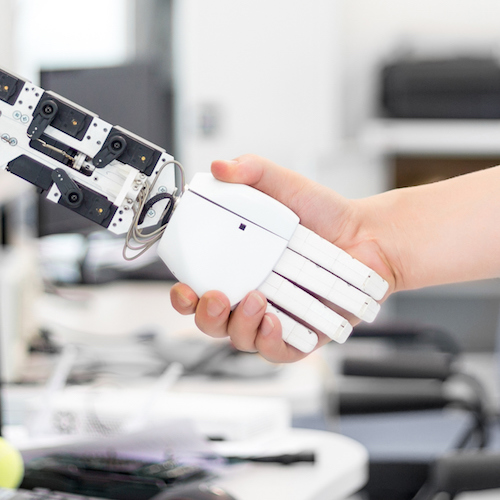Jobs
Report Says Mandated Wage Hikes Accelerate Introduction of Technology in Workplace

Published:
Last Updated:

New research indicates that minimum-wage laws have forced companies to accelerate the introduction of technology in the workplace, hurting American workers in mostly low-skilled jobs. The findings come from a working paper published by the National Bureau of Economic Research (NBER) called “People Versus Machines: The Impact of Minimum Wages on Automatable Jobs,” by Grace Lordan and David Neumark.
The researchers studied the effect of minimum-wage gains on employment in automatable jobs — those jobs in which employers may find it easier to swap out machines for people — focusing on low-skilled workers from whom that substitution may be prompted by minimum-wage increases. The research was derived from Current Population Survey data from 1980 to 2015.
The report comes as the debate over the impact of higher minimum wages takes on a political dimension. Many Democrats are pushing to increase the minimum wage to $15 an hour as part of their “Better Deal” economic agenda they introduced last month to appeal to the working and middle classes.
Many states have continued to regularly raise minimum wages, and some states have newly implemented minimum wage laws that are higher than the federal minimum, with a number of states indexing their minimum wages. Thirty states, including the District of Columbia, had a minimum wage higher than the federal minimum wage of $7.25. Cities such as Seattle have a minimum wage of $15.
NBER found that raising the minimum wage “decreases significantly the share of automatable employment held by low-skilled workers, and increases the likelihood that low-skilled workers in automatable jobs become unemployed.”
The research says mandating higher wages hurts jobs for low-skilled workers across a range of industries. The authors say employers may “substitute away from labor with technological innovations – such as supermarkets substituting self-service checkout for cashiers, and assembly lines in manufacturing plants substituting robotic arms for workers.”
Companies such as McDonald’s have been accelerating deployment of technology such as menus on touch screens that allow customers to tap their orders without interacting with a cashier.
The research also found that older workers in manufacturing are hit particularly hard by mandated higher minimum wages, with women and African-American workers hurt disproportionately.
Automation is becoming more common in the American workplace. However, it is less common in comparison with other industrialized nations, some of which are adding robots and automated platforms because of labor shortages. Japan leads the world in robots per 10,000 workers in the automobile sector — 1,562, compared with 1,091 in the United States and 1,133 in Germany, according to a White House report submitted to Congress last year. Japan also led in sectors outside automobiles at 219 robots per 10,000 workers, compared with 76 for the United States and 147 for Germany.
Take the quiz below to get matched with a financial advisor today.
Each advisor has been vetted by SmartAsset and is held to a fiduciary standard to act in your best interests.
Here’s how it works:
1. Answer SmartAsset advisor match quiz
2. Review your pre-screened matches at your leisure. Check out the
advisors’ profiles.
3. Speak with advisors at no cost to you. Have an introductory call on the phone or introduction in person and choose whom to work with in the future
Take the retirement quiz right here.
Thank you for reading! Have some feedback for us?
Contact the 24/7 Wall St. editorial team.